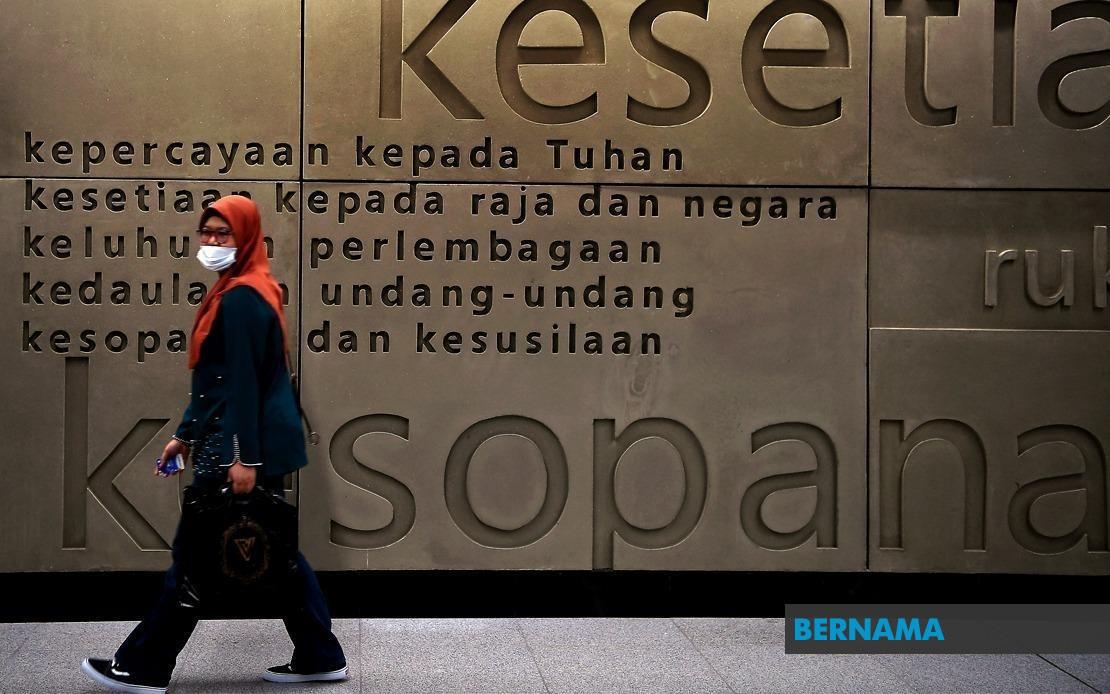
By Shanika Abdullatib
KUALA LUMPUR (Bernama) – Most Malaysians are familiar with the Rukun Negara. Reciting the Rukun Negara is an integral part of the weekly school assemblies, and who could possibly have missed the five principles that are dutifully printed on the back cover of every school exercise book?
Nearly 50 years have gone by since the Rukun Negara was drawn up by the government and proclaimed by the fourth Yang di-Pertuan Agong Tuanku Ismail Nasiruddin Shah Ibni Al-Marhum Sultan Zainal Abidin on Aug 31, 1970.
Malaysians may have committed the five pillars of Rukun Negara to memory, but how many of them understand and appreciate the underlying significance and philosophy behind each tenet?
Formulated after the racial riots of May 13, 1969, Rukun Negara was aimed at forging racial unity and harmony among the nation’s multiracial communities.
Unfortunately, with the passage of time and the significance of the five pillars largely forgotten, the true spirit of Rukun Negara is probably lost on the people, particularly the younger generation.
To stress the importance of embracing the spirit of the five pillars, Second Prime Minister Tun Abdul Razak Hussein once said, “… the secret to perfecting the Rukun Negara is through its practice. Without practising it, the Rukun Negara is merely a piece of document bereft of meaning.”
SHALLOW UNDERSTANDING
Principal fellow at the Institute of Malay World and Civilisation at Universiti Kebangsaan Malaysia Prof Datuk Dr Teo Kok Seong said it is not enough for the people to merely memorise and recite the Rukun Negara; instead, they must understand it and put it into practice in their daily lives.
“To me, our society’s understanding of the Rukun Negara is still shallow and there’s little appreciation for it.
“How can they appreciate it when it comes in a format where they only have to memorise the five principles,” he said in an interview with Bernama ahead of the launch of the celebrations to mark 50 years of Rukun Negara, as well as Merdeka Month and National Day 2020, on July 7.
Teo attributed the poor understanding of Rukun Negara to ongoing conflicts over the national language and failure to uphold the supremacy of the Federal Constitution, as well as criticisms hurled at the institution of monarchy which, he said, is an affront to the second pillar of Rukun Negara namely Loyalty to King and Country.
Pointing to Indonesia which has its own Pancasila (Five Principles) national philosophical policy – which is similar to the Rukun Negara – introduced in 1945, he said the Indonesians took the policy very seriously as it has enough substance to influence their daily lives.
“Malaysia borrowed its (Indonesia’s) principles but the implementation has been weak. The government created it (Rukun Negara) but left it to the people to understand it themselves. There’s no explanation with regard to (principles of) Rukun Negara,” he said.
PILLAR OF UNITY
In view of the Rukun Negara’s golden jubilee celebration this year, Teo hoped that the pillar of national unity would strengthen further with a better understanding and appreciation of its principles among the people.
He suggested that the Academy of Nationhood, which was formerly under Biro Tatanegara or National Civics Bureau, be given the responsibility to create a special curriculum outlining the philosophy behind the Rukun Negara.
He said this will enable the government to realise its aspiration to implement a Rukun Negara education programme in schools, universities and other organisations.
Last week, Communications and Multimedia Minister Datuk Saifuddin Abdullah said the proposal for the long-term Rukun Negara education programme will be presented to the Cabinet for approval and it would be placed under the jurisdiction of the National Unity Ministry.
Malaysian Youth Council vice-president Mohd Izzat Afifi Abdul Hamid, meanwhile, opined that the Rukun Negara has helped to guide Malaysians to build a progressive and harmonious nation.
IN-DEPTH EXPLANATION
Concurring with Teo that the best way to enrich the people’s understanding of Rukun Negara is through education, Mohd Izzat said they should be exposed to it from a young age.
“Teaching about Rukun Negara shouldn’t be limited to just memorising its principles. An in-depth explanation should be given, the level of which will depend on where it is being taught – primary school, secondary school or institution of higher learning,” he said.
He also said that Malaysians should assimilate the principles of Rukun Negara into their culture, instead of just reserving it for official functions.
“Look at Indonesians who have a deep appreciation of their Pancasila. Its philosophies are depicted even in the movies and cartoons they produce,” he added.
Translated by Rema Nambiar
BERNAMA
TENTANG KAMI
Pertubuhan Berita Nasional Malaysia
Wisma BERNAMA
No.28 Jalan BERNAMA
Off Jalan Tun Razak
50400 Kuala Lumpur
Malaysia
Tel : +603-2693 9933 (Talian Am)
Email : helpdesk@bernama.com
Kategori
• Am
• Ekonomi
• Sukan
• Politik
• Dunia
• Rencana
• Tinta Minda
• Infografik
• Video
• Images
• Siaran Media Eksklusif
Hak Cipta
